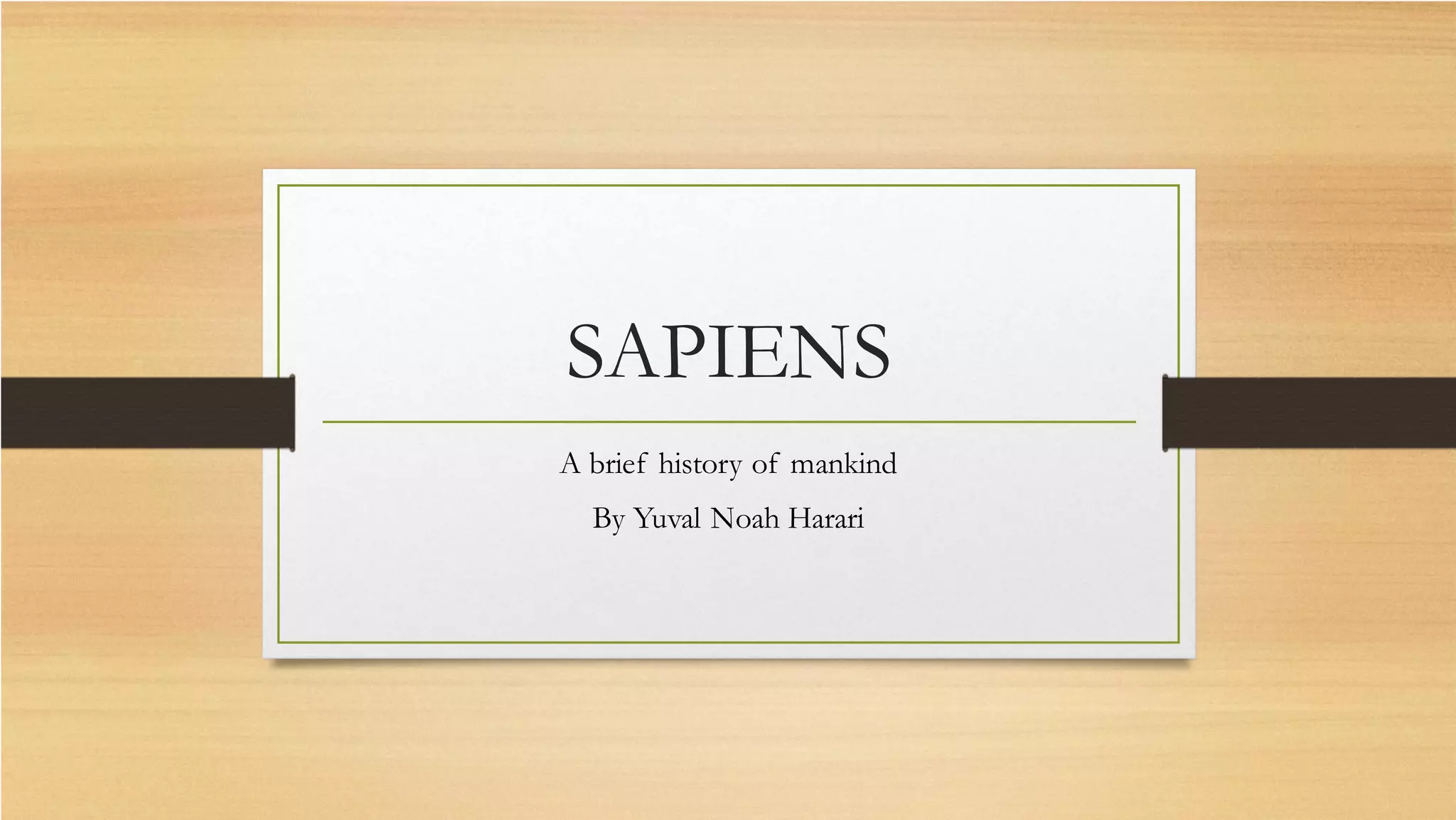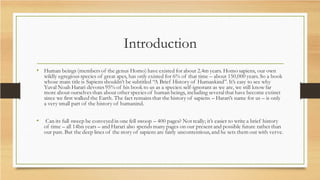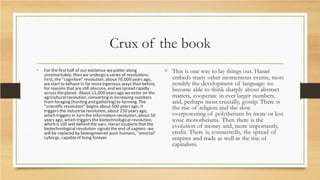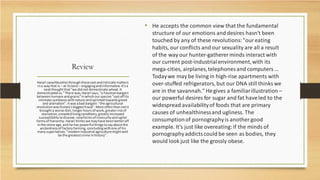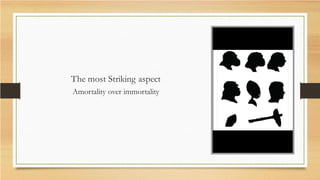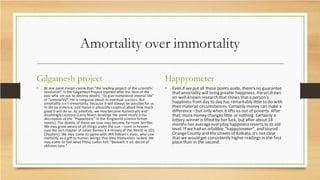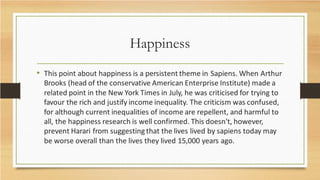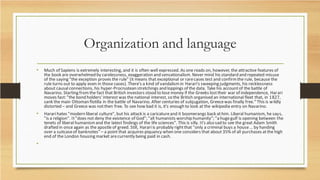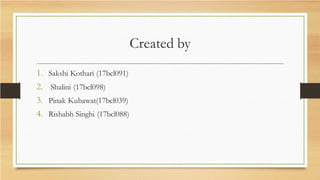The book Sapiens by Yuval Noah Harari provides a brief history of humankind over the past 2.4 million years. It summarizes that Homo sapiens have only existed for around 150,000 years, which is a small portion of the total time humans have been around. The book then outlines some of the major revolutions in human history, including the cognitive revolution around 70,000 years ago, the agricultural revolution around 11,000 years ago, and more recent scientific and industrial revolutions. One of the most striking aspects discussed is the potential for developing "amortality" through advances in biotechnology, which could allow humans to live indefinitely through avoiding death, though not confer true immortality.
